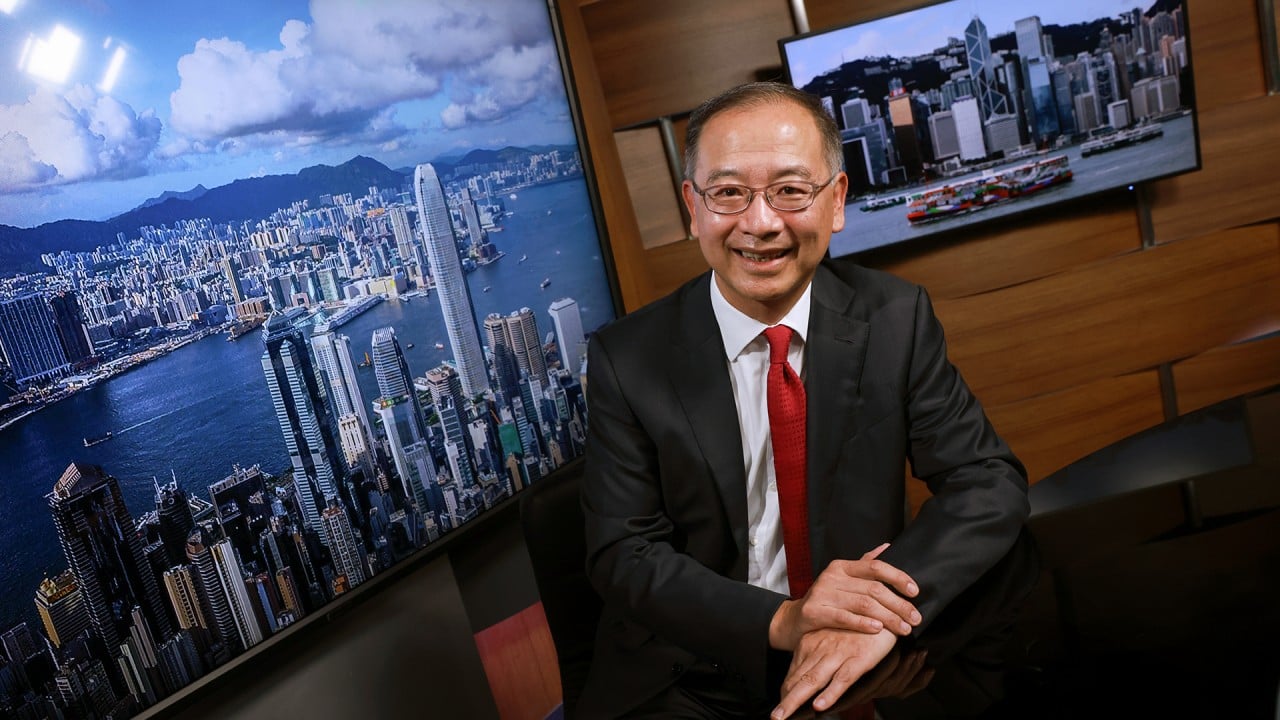
Brace for more mortgage pain as HSBC, Hong Kong peers seen lifting prime rates with the Fed odds-on to tighten policy again
- Eleven of 13 analysts surveyed by the Post on Monday expect Hong Kong lenders to increase their prime rates by at least 12.5 basis points next week
- Higher borrowing costs will burden consumers with mortgage financing bills, ease pressure on capital flight to US dollar assets
That would deliver a blow to consumers servicing HK$1.83 trillion (US$232 billion) of outstanding home mortgages, as well as delay a recovery in the city’s real estate market and economy. The upshot is that it could help stem capital flight to higher-yielding US dollar assets.
HSBC, Standard Chartered, Bank of China (Hong Kong) (BOCHK) and their peers are likely to bump up their prime rates by 12.5 basis points to 25 basis points, to the highest level last seen in February 2008, according to 11 of the 13 analysts surveyed by the Post on Monday. Two predicted no change.
All 13 agreed the US central bank will lift its target rate by 25 basis points at its July 25-26 policy-setting meeting. Contracts on Fed fund futures implied a 96 per cent chance of a hike this month, while the odds are less than even for the other three remaining meetings in 2023.

“Hong Kong’s interbank liquidity is tight, the one-month Hibor stays at an uncomfortably high level,” said Desmond Tjiang, chief investment officer for equities at BEA Union Investment, which manages about US$7.3 billion of assets. “Banks will need to follow the US and raise their prime rates, albeit by a smaller magnitude.”
The Hong Kong interbank offered rate, or Hibor, is the rate at which banks lend to each other, ranging from overnight to 12-month periods. The one-month rate, a benchmark for pricing home mortgages, was quoted at 4.96 per cent on Friday, versus 3.41 per cent in early May.
The three-month rate, a reference for corporate loans, has risen to 5 per cent from 3.71 per cent over the same period, while the 12-month Hibor climbed to 5.19 per cent from 4.4 per cent, according to data published by the Hong Kong Association of Banks.
The one-month Hibor-Libor gap stands at 34 basis points in favour of US dollar rates. The Hong Kong dollar has traded near the weak side of its HK$7.75-7.85 trading band for most of the past 12 months, prompting market intervention and depleting the city’s aggregate balance by 80 per cent to just under HK$45 billion.
Hong Kong earlier this month loosened mortgage financing rules in the biggest market support move since 2009 by allowing first-time homebuyers and upgraders to borrow more against the value of their homes to help shore up the market.
“It is not good for Hong Kong’s economic recovery,” said Samuel Tse, an economist and strategist at DBS Bank in Hong Kong, who expects local banks to raise their prime rates by 25 basis points. “Rate hikes will hurt homebuyers.”
The number of property transactions fell 10 per cent in June from a month earlier, sliding to a five-month low of 4,777 worth HK$293.1 billion, according to data released by the Land Registry. Home prices have weakened 15.9 per cent from a peak 20 months ago, and could lose as much as 8 per cent in 2023, according to JLL, a property consultancy.
Hong Kong part of global financial system, not just gateway to China: HKMA CEO
In the Monday survey, five of the 11 analysts expected local banks to raise their prime rates by 12.5 basis points, while three predicted a range of 12.5 to 25 basis points, and three foresaw a 25-basis point increase.
Banks might decide not to increase prime rates to help protect the nascent economic rebound, said Louis Tse Ming-kwong, managing director of Wealthy Securities in Hong Kong, one of the two analysts who is banking on a status quo next week.
A 12.5-basis point increase will add HK$351, or 1.6 per cent, to HK$22,803 in monthly instalments on a typical HK$5 million, 30-year mortgage loan, according to mReferral, a local mortgage broker.
HSBC, BOCHK and Hang Seng Bank kept the rates they charge their best customers unchanged at 5.75 per cent in June. Standard Chartered and Bank of East Asia held their rates at 6 per cent. The Fed paused in June to assess the impact of its successive hikes since the March 2022 lift-off.
The Hong Kong Monetary Authority manages its base rate in lockstep with the Fed’s policy decision, to help preserve the local currency’s peg to the US dollar under its Linked Exchange Rate System.
A stronger-than-expected US economy will allow the Fed to remain “hawkish” and tame inflation closer to its 2 per cent long-term target, according to KGI Asia assistant vice-president of investment strategy Raymond Mok.


